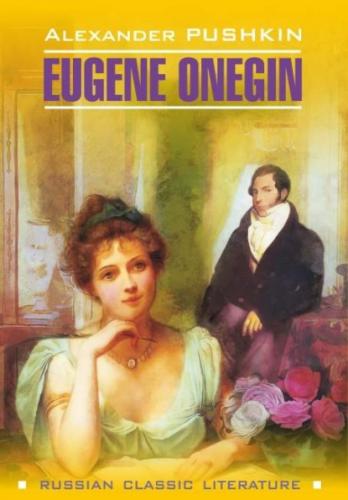First reconciled and then content;
Habit was given us in distress
By Heaven in lieu of happiness.
XXXII
Habit alleviates the grief
Inseparable from our lot;
This great discovery relief
And consolation soon begot.
And then she soon ’twixt work and leisure
Found out the secret how at pleasure
To dominate her worthy lord,
And harmony was soon restored.
The workpeople she superintended,
Mushrooms for winter salted down,
Kept the accounts, shaved many a crown[23],
The bath on Saturdays attended,
When angry beat her maids, I grieve,
And all without her husband’s leave.
XXXIII
In her friends’ albums, time had been,
With blood instead of ink she scrawled,
Baptized Prascovia Pauline,
And in her conversation drawled.
She wore her corset tightly bound,
The Russian N with nasal sound
She would pronounce a la Francaise;
But soon she altered all her ways,
Corset and album and Pauline,
Her sentimental verses all,
She soon forgot, began to call
Akulka who was once Celine,
And had with waddling in the end
Her caps and night-dresses to mend.
XXXIV
As for her spouse he loved her dearly,
In her affairs ne’er interfered,
Entrusted all to her sincerely,
In dressing-gown at meals appeared.
Existence calmly sped along,
And oft at eventide a throng
Of friends unceremonious would
Assemble from the neighbourhood:
They growl a bit – they scandalise —
They crack a feeble joke and smile —
Thus the time passes and meanwhile
Olga the tea must supervise —
‘Tis time for supper, now for bed,
And soon the friendly troop hath fled.
XXXV
They in a peaceful life preserved
Customs by ages sanctified,
Strictly the Carnival observed,
Ate Russian pancakes at Shrovetide,
Twice in the year to fast were bound,
Of whirligigs were very fond,
Of Christmas carols, song and dance;
When people with long countenance
On Trinity Sunday yawned at prayer,
Three tears they dropt with humble mein
Upon a bunch of lovage green;
Kvass needful was to them as air;
On guests their servants used to wait
By rank as settled by the State.[24]
XXXVI
Thus age approached, the common doom,
And death before the husband wide
Opened the portals of the tomb
And a new diadem supplied.[25]
Just before dinner-time he slept,
By neighbouring families bewept,
By children and by faithful wife
With deeper woe than others’ grief.
He was an honest gentleman,
And where at last his bones repose
The epitaph on marble shows:
Demetrius Larine, sinful man,
Servant of God and brigadier,
Enjoyeth peaceful slumber here.
XXXVII
To his Penates now returned,
Vladimir Lenski visited
His neighbour’s lowly tomb and mourned
Above the ashes of the dead.
There long time sad at heart he stayed:
“Poor Yorick,” mournfully he said,
“How often in thine arms I lay;
How with thy medal I would play,
The Medal Otchakoff conferred![26]
To me he would his Olga give,
Would whisper: shall I so long live?” —
And by a genuine sorrow stirred,
Lenski his pencil-case took out
And an elegiac poem wrote.
XXXVIII
Likewise an epitaph with tears
He writes upon his parents’ tomb,
And thus ancestral dust reveres.
Oh! on the fields of life how bloom
Harvests of souls unceasingly
By Providence’s dark decree!
They blossom, ripen and they fall
And others rise ephemeral!
Thus our light race grows up and lives,
A moment effervescing stirs,
Then seeks ancestral sepulchres,
The appointed hour arrives, arrives!
And our successors soon shall drive
Us from the world wherein we live.
XXXIX
Meantime, drink deeply of the flow
Of frivolous existence, friends;
Its insignificance I know
And care but little for its ends.
To dreams I long have closed mine eyes,
Yet sometimes banished hopes will rise
And agitate my heart again;
And thus it is ’twould cause me pain
Without the faintest trace to leave
This world. I do not praise desire,
Yet still apparently aspire
My mournful fate in verse to weave,
That like a friendly voice its tone
Rescue me from oblivion.
XL
Perchance
